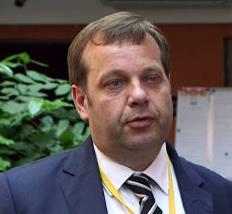|
Agricultural economist Nan-Dirk Mulder, Senior Analyst for Animal Protein at Rabobank recently updated the 2017 Time for Africa in which the Continent was highlighted as a potential investment area for broiler production.
Mulder who has an eminent reputation promotes the African continent as a strong investment opportunity "with plenty of room to grow". He bases his projection on an emerging middle class and the potential for local production of feed grains coupled with modernization.
Rabobank research notes that the poultry industry in Africa currently is worth $16 billion annually. Mulder does not however explain that virtually all the investments and production is from the Republic of South Africa (1.4 million m. tons) and a lesser contribution from West African nations (0.6 million m. tons) and Egypt (0.5 million m. tons). The growth rate of 8 to 10 percent compounded is difficult to accept in the major producing nations that dominate output having developed mature industries growing at less than 2% annually.
|

Dirk-Nan Mulder, Rabobank |
 This commentator grew up in the poultry industry in South Africa and has maintained contact with companies in various nations in North and Southern Africa for over the past 40 years. In agreement with Mulder there is considerable potential for short-term profit by initiating commercial egg or broiler production in developing nations. Unfortunately, markets are quickly saturated and there are a considerable number of factors that detract from long-term profitability. These include:-
This commentator grew up in the poultry industry in South Africa and has maintained contact with companies in various nations in North and Southern Africa for over the past 40 years. In agreement with Mulder there is considerable potential for short-term profit by initiating commercial egg or broiler production in developing nations. Unfortunately, markets are quickly saturated and there are a considerable number of factors that detract from long-term profitability. These include:-
· Deficiencies in infrastructure impose logistic restraints especially when feed ingredients have to be imported and transported from ports to regional production centers. Moving broiler meat and eggs to markets in urban centers is complicated by atrocious roads, periodic floods in some nations and even banditry.
· Profound corruption at all levels of government coupled with erratic decision-making, parochial preferences and nepotism.
· Absence of agricultural development banks to provide financing for small and intermediate-level farmers. Seasonal loans are required to ensure a consistent supply of ingredients of suitable quality for poultry feed.
· Unfavorable climatic conditions which require investment in housing and equipment to achieve acceptable performance standards.
· Failure by governments to plan and invest in water conservation results in serious impacts on grain and livestock production when periodic droughts occur contrasted with extensive flooding and disruption with unseasonal rain.
· Indifferent power supply due to lack of investment, incompetent management and failure to plan for industrial demand. The situation regarding Eskom the government power utility in South Africa is an example in point.
· An indifferent legal system that inhibits foreign investment.
· Poorly-trained and motivated labor that is unproductive.
· Lack of local technical personnel requiring the use of expatriates in developing nations.
· Absence of spare parts and services to maintain equipment and installations critical to ongoing operations.
· Endemic diseases including catastrophic infections such as Newcastle disease and avian influenza in addition to a full range of erosive and parasitic conditions. Availability of diagnostic resources, vaccines and medications exacerbate the effect of disease.
At the end of the day, factors as enumerated result in a high cost of production for domestic poultry meat and eggs. Nations such as Brazil, the Argentine and U.S. can outcompete domestic producers even with the cost of freight and duties. In many cases protection is required to support a young growing industry. Frequently erratic government policy influenced by expediency or corruption can run counter to incentives offered to domestic producers and foreign investors. A typical situation is an offer by the government de jour to provide tariff protection to justify investment, followed by relaxation of import control when opportune. A 'chicken in every pot" is a standard pre-election strategy by politicians to the disadvantage of local producers. Competition from both legal and grey-market importation may force domestic producers to lower prices to levels below cost. The multi-year ongoing legal and political efforts exerted by the South African Poultry Association to oppose importation of U.S. leg quarters illustrates the problem of on-again-off-again policies relating to capital investment for poultry production in Africa.
The reality of sourcing broiler meat in African countries is exemplified by Angola. This oil-rich nation is a major importer of processed poultry from Brazil and the U.S. The Government recognized that high quality product is available at a price lower than could be attained by local producers and importation obviates the need for capital investment in infrastructure.
It is relatively easy to predict a bountiful future for investment in poultry production on the African continent based on simplistic presumptions. Achieving acceptable returns relative to risk is yet another situation. There may be islands of opportunity such as Rwanda but these are limited and at the end of the day rely on strong government support and incentives with growth limited by market demand.